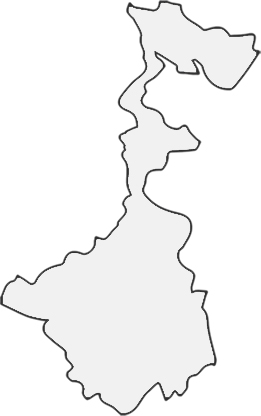
Stand Up - West Bengal
A Project to Promote Equitable Regional Economic Development
Our Project
Our project’s objective is to assist in the development of selected smaller cities (population under or around 3 lakhs) in different parts of each State. We expect these cities to grow fast and absorb some of the people leaving their villages, so that the migrants don’t end up in large, congested cities.
West Bengal has one of the most regionally unequal development of any Indian State, with heavy dominance of Kolkata and a few other cities. To begin, we have selected Jalpaiguri and Suri, based on objective criteria (see at the end of this note, that define a city as growth-ready). We are looking to select a third city from Burdwan and Medinipur Divisions, and eventually expect to expand to about 10 cities.
Our Vision
Our vision is rapid equitable regional economic development of each State that we operate in, so that all people share in rising prosperity. At present, our focus is on West Bengal, Rajasthan, and Odisha, and we expect to expand to MP, Assam, and Punjab later on. These States have the potential to do much better economically in selected aspects without significant additional government expenditures.
Project Objective
Our project’s objective is to initially assist existing MSMEs in these cities, and later support entrepreneurs to set up new MSMEs. We hope that, within about 7 years, the total output from all the MSMEs in each of these cities will double, and this will create a significant number of new jobs.
This project is consistent with the priorities of the Union and West Bengal governments. We note that the West Bengal government signed in December 2021 an MOU under which SIDBI will help develop the MSME ecosystem in the state.
Our Operational Modality
We are a new type of a non-profit group (NPG), different from conventional NGOs. Unlike conventional NGOs, we are production-oriented. We are inspired by success production-oriented non-profit groups such as Amul and SEWA. A key difference is that they help their members but we have no membership and will assist all MSMEs.
Our work will be catalytic and facilitative. We will function as a “proactive helpdesk” for the MSMEs, involved in financial, marketing, technical, and administrative/regulatory issues faced by the MSMEs. We will be “handholding” the MSMEs but without providing any resources ourselves. We will have some limited local capacity in each city, which will bring in State and national resources as needed.
We will help the MSMEs do better by enabling them to take more and quicker advantage of existing government schemes that aim to reduce the growth barriers constraining the existing and future MSMEs. Where there are no relevant existing schemes, we will bring in non-government State and national level support from groups and people who want to help MSMEs.
In this way, we will help the existing MSMES to their financial strength, which allow them to grow, and assist interested entrepreneurs to set up units in the selected cities.
Legal/financial status
At present, we do not have a formal legal status but are working towards it. We have not received and are not looking for any funds from any source.
Our Schedule
We completed the stage of defining the project concept and broad operational modalities. The next steps are:
Task 1. By end June 2022, complete “detailed ground reality assessment.” This would include:
- An understanding of the ground reality of existing MSMEs in the selected three cities.
- An understanding of the relevant schemes already available to the MSMEs.
- An understanding of who are the key stakeholders of all varieties, and establishment of rapport with them.
Task 2. By end August 2022, define “initial activities of helpdesk.” This would include:
- Defining the key practical steps to mitigate the major growth barriers faced by the MSMEs
- Reaching an understanding with the MSMEs on how we will assist them.
- Explaining to the key stakeholders our approach, so that they are on board with our work.
Task 3. By end September 2022, begin “initial implementation activities.” The details will be decided in due course as we complete Tasks 1 and 2.
Task 4. By end December 2022, begin “full implementation activities.” The details will be decided in due course as we complete Tasks 1, 2, and 3.

Criteria To Select Smaller Growth-Ready Cities
- Population under or close to 3 lakhs.
- Located in different parts of the State.
- Adequate physical (road, rail), human (health, education, and digital infrastructure.
- Ongoing MSMEs that have growth potential.
- Available land and water supply for city expansion.
